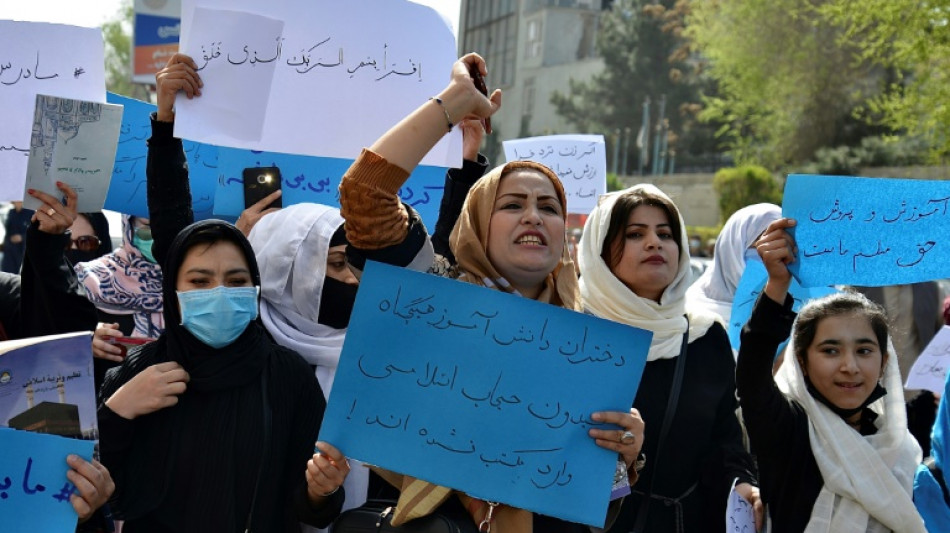
-
 EU parliament backs emissions reprieve for carmakers
EU parliament backs emissions reprieve for carmakers
-
Trump announces trade agreement with UK
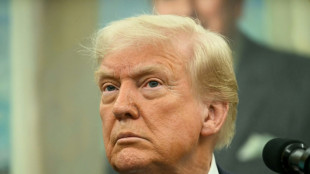
-
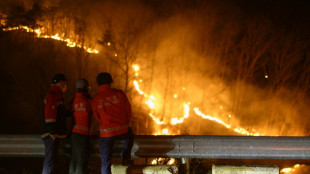 Global temperatures stuck at near-record highs in April: EU monitor
Global temperatures stuck at near-record highs in April: EU monitor
-
Stocks rise as Trump signals US-UK 'trade deal'

-
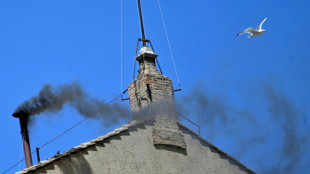 Second black smoke, cardinals to vote again for new pope
Second black smoke, cardinals to vote again for new pope
-
Screams and shattered glass under Pakistan bombardment
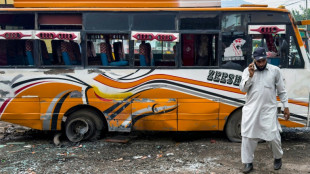
-
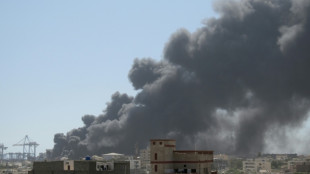 Drone strikes spark civilian exodus from army-controlled Sudan aid hub
Drone strikes spark civilian exodus from army-controlled Sudan aid hub
-
First responders in Gaza run out of supplies

-
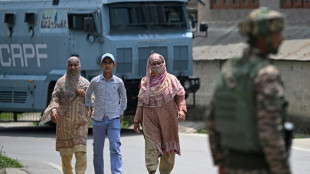 Pakistan shoots down 25 Indian drones near military installations
Pakistan shoots down 25 Indian drones near military installations
-
Xi meets Putin in Moscow as Ukraine reports truce violations
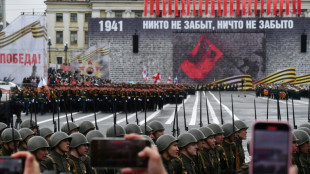
-
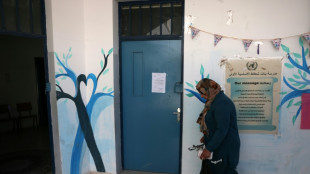 Israel forces close UN schools in annexed east Jerusalem
Israel forces close UN schools in annexed east Jerusalem
-
Trump to announce 'trade deal' with UK
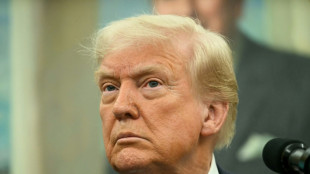
-
 'Jumbo': the animated Indonesian film smashing records
'Jumbo': the animated Indonesian film smashing records
-
Stocks rise on trade hopes, London boosted by reports of deal

-
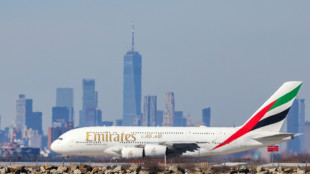 Emirates airline group announces record $6.2 bn gross profit
Emirates airline group announces record $6.2 bn gross profit
-
Accused mushroom murderer sent children to movies before deadly meal

-
 Nintendo forecasts 15 million Switch 2 sales in 2025-26
Nintendo forecasts 15 million Switch 2 sales in 2025-26
-
Australian Greens chief loses his own seat
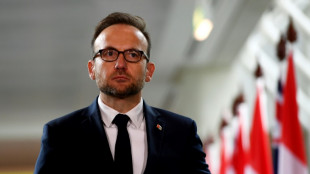
-
 Toyota cites tariffs as it forecasts 35% net profit drop
Toyota cites tariffs as it forecasts 35% net profit drop
-
Wolf protection downgrade set for green light in EU

-
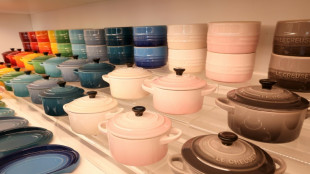 Global cult following keeps Le Creuset simmering
Global cult following keeps Le Creuset simmering
-
Austria's JJ makes operatic pop soar at Eurovision

-
 Toyota cites tariffs as it forecasts 35% drop in 2025-26 net profit
Toyota cites tariffs as it forecasts 35% drop in 2025-26 net profit
-
Depoliticising Eurovision 'impossible', experts say

-
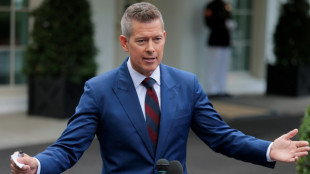 Trump official to unveil ambitious US air traffic control upgrade
Trump official to unveil ambitious US air traffic control upgrade
-
India and Pakistan trade fire after deadly escalation
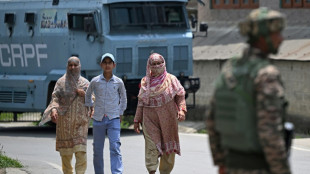
-
 Knicks rally again to take 2-0 lead over Celtics, Thunder roar back
Knicks rally again to take 2-0 lead over Celtics, Thunder roar back
-
What the shell: scientists marvel as NZ snail lays egg from neck

-
 Eurovision week's opening parade set to start the party
Eurovision week's opening parade set to start the party
-
Trump to announce trade deal with UK on Thursday: US media
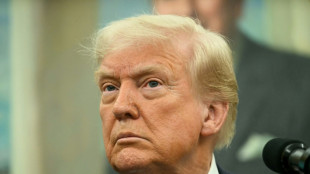
-
 Dhoni says 'nothing to decide now' over retirement plans
Dhoni says 'nothing to decide now' over retirement plans
-
A bitter return for Iraqis kicked out of Europe
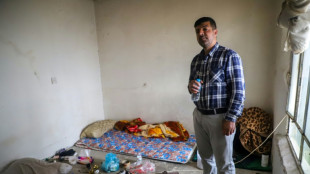
-
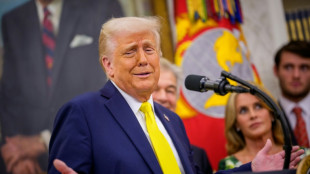 Stocks rise further on growing trade deal hopes
Stocks rise further on growing trade deal hopes
-
Filipino pope could revive priestly vocations in Catholic bastion

-
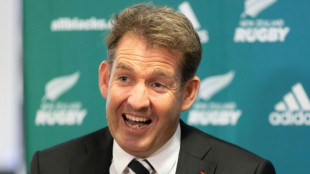 NZ Rugby posts $11.6 mn loss, admits financial model 'not sustainable'
NZ Rugby posts $11.6 mn loss, admits financial model 'not sustainable'
-
NZ Rugby posts $19.7mn loss, admits financial model 'not sustainable' financial model
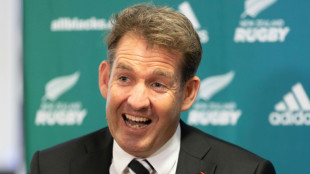
-
 All eyes on Sistine Chapel chimney as conclave enters day two
All eyes on Sistine Chapel chimney as conclave enters day two
-
Digital voting breeds distrust among overseas Filipino workers
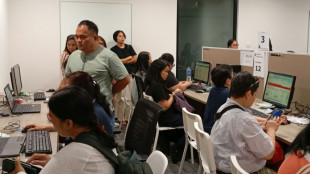
-
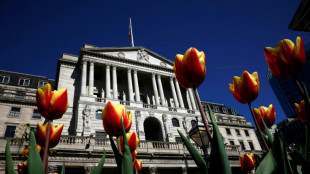 Bank of England set to cut rate amid Trump's tariffs
Bank of England set to cut rate amid Trump's tariffs
-
Trump tariff plan brings Hollywood's struggles into focus
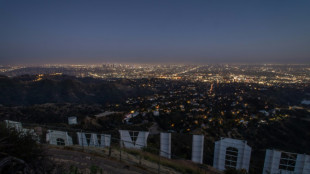
-
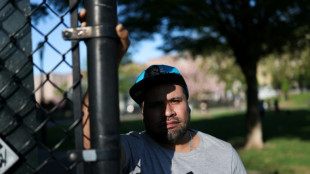 'Dream turned nightmare' for Venezuelan migrant deported from US by Trump
'Dream turned nightmare' for Venezuelan migrant deported from US by Trump
-
Wellgistics Health Secures $50M Credit Facility and Launches XRP-Powered Payment Initiative

-
 Moderna to Present at Upcoming Bernstein's 41st Annual Strategic Decisions Conference (SDC) on May 29, 2025
Moderna to Present at Upcoming Bernstein's 41st Annual Strategic Decisions Conference (SDC) on May 29, 2025
-
Eagle Plains Provides Update on Saskatchewan Gold and VMS Projects

-
 McFarlane Lake to Begin Trading on the CSE on May 8, 2025
McFarlane Lake to Begin Trading on the CSE on May 8, 2025
-
Jumia Reports First Quarter 2025 Results

-
 Idaho Strategic Reports First Quarter 2025 Operating and Financial Performance
Idaho Strategic Reports First Quarter 2025 Operating and Financial Performance
-
Broad-Spectrum Antiviral Drug NV-387 Cleared for Phase II Clinical Trial Application by the National Ethics Committee of the Democratic Republic of Congo

-
 Jaguar Mining Reports Financial Results for the First Quarter 2025
Jaguar Mining Reports Financial Results for the First Quarter 2025
-
Lithium Corporation Commences 2025 Field Work


Girls' education ban reveals deep rifts within Taliban
The Taliban prohibition on girls' education shows the movement's ultra-conservatives retain tight control of the Islamist group, and exposes a power struggle that puts at risk crucial aid for Afghanistan's desperate population, experts say.
The ban has triggered international outrage and even left many in the Taliban movement baffled by the decision.
"The order was devastating," a senior Taliban member told AFP. "The supreme leader himself interfered."
All Taliban officials who spoke to AFP on the subject did so on condition of anonymity, due to the sensitivity of the topic.
Secondary schools for girls were ordered to shut last month, just hours after being reopened for the first time since the Taliban's return to power in August.
The shocking U-turn came after a secret meeting of the group's leadership in the city of Kandahar, the Taliban's de facto power centre.
Officials have never justified the ban, apart from saying the education of girls must be according to "Islamic principles"
But one senior Taliban official told AFP that Supreme Leader Hibatullah Akhundzada and some other senior figures were "ultra-conservative on this issue" and dominated the discussion.
Two groups -- the urban and the ultra-conservatives -- have emerged in the movement, he said.
"The ultra-conservatives have won this round," he added, referring to a group of clerics including Chief Justice Abdul Hakim Sharai, Minister for Religious Affairs Noor Mohammad Saqeb and Minister for Promotion of Virtue and Prevention of Vice Mohammad Khalid Hanafi.
- Reimposing Kandahar's influence -
The clerics feel excluded from government decisions and voicing their opposition to girls' education is one way to restore their influence, said Ashley Jackson, a London-based researcher who has worked extensively on Afghanistan.
She told AFP the "outsized influence of this out-of-touch minority" has prevented the country from moving ahead with something the vast majority of Afghans favour -- including much of the leadership.
"It shows that Kandahar remains the centre of gravity for Taliban politics," said International Crisis Group analyst Graeme Smith.
A senior Taliban member said the hardliners were trying to appease thousands of fighters who hail from the deeply conservative countryside.
"For them, even if a woman steps out of her home it is immoral. So, imagine what it means to educate her," he said.
The Taliban member said Akhundzada was against "modern, secular education" as he associated it with life under former Western-backed presidents Hamid Karzai and Ashraf Ghani.
"That's his worldview."
The Taliban returned to power last year as US-led forces ended an occupation in place since an invasion ousted the hardliners in 2001.
In the 20 years between the Taliban's two reigns, girls were allowed to go to school and women were able to seek employment in all sectors, though the country remained socially conservative.
Activist and Islamic scholar Tafsir Siyaposh noted girls in Afghanistan have always studied in single-sex classes and followed an Islamic curriculum, so the ban shows the Taliban just wanted to "oppress the rights of women by giving excuses".
- Blow to foreign aid -
A Taliban source in Pakistan confirmed differences at the leadership level on the issue, but said the movement was in no danger of fragmenting.
"There is a debate on this issue ... but we are trying to overcome our shortcomings," he said.
Still, analysts say the ban was a blow to Taliban efforts to gain international recognition and to raise aid to address Afghanistan's humanitarian crisis.
Jackson said neither Akhundzada nor those closest to him "fully understood or appreciated" the consequences of their edict for an international community that has linked official recognition to the group's respect for women's rights.
Even some senior Taliban officials agree.
"We are telling them (the ultra-conservatives) that running a country is different from running a madrassa," said one Taliban official from Kandahar, using the term for an Islamic school.
"Everything was going smooth until this harsh order came. And it came from our leader so we have to follow it -- but we are trying to change it," he said.
The ban reduces the willingness of governments to cooperate with the Taliban said the ICG's Smith.
"It raises the question of who exactly they should speak with inside the Taliban."
J.Williams--AMWN